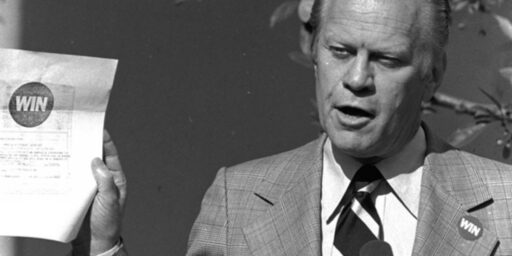BOOK PRICES
Sean Hackbarth links a story about his employer Barnes & Noble’s Collector’s Library, which he says is an attempt on the part of B&N ‘s “efforts to make books more affordable.” He links a Publishing Trends piece from June 2002 about how outrageous book prices have gotten.
Interesting. As one on the other end of the book business — an acquisitions editor with a publishing house at the mercy of the B&N’s of the world — I always just assumed that such efforts were a way for the book chains to keep more shelf space devoted to books that are almost pure profit. This particular series, like those by Borders and other major chains, simply repackages books in the public domain and cut the middle man out of the process.
The publisher I work for is actually quite price sensitive and has tried to keep prices down well below that in the article. The problem is that the economy of the book business is just whack — discounts to wholesalers and mass chains in the 47-50% range, payments made on credit and usually well behind schedule, and a no-risk situation for the retailers, who can return books — often damaged — for a full refund if they don’t sell.
Update (2012): Sean responds here.
It’s definitely a weird business, many of the quirks of which (notably returns) date back to the Depression. As someone who’s been a consumer of books far longer than a producer of them, I know that I’m quite price sensitive. I seldom buy hardback fiction until it hits the discount tables.
The price of printed works has far outpaced inflation over the last 25 years or so — and their price compared to that of other forms of entertainment has certainly exploded. In 1977, a standard comic book was 30 cents; they’re now $2.99 — nearly a tenfold increase. A typical paperback book was around $1.25; they’re now $6.50 — more than a fivefold increase. By contrast, the price of recorded music and other entertainment competitors has increased at less than the general rate of inflation.






The problem with the increased publishing prices can’t be blamed on oligopoly since the book industry is more diffuse than Big Music.
Part of it is simply an inordinate increase in the cost of wood pulp, with which paper is made. Indeed, wood products generally are way up over the last decade or so.